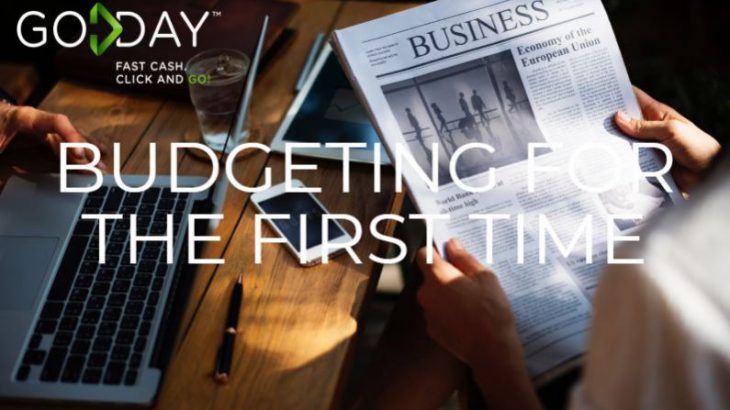
How do you keep track of your funds? Do you have a budget currently in place? If so, what helps keep your budget on track? If not, that’s okay too but could be the reason you’re feeling stressed or all over the place when it comes to your finances. So how do you start budgeting? Because everyone’s financial priorities are different, no budget is ever the same. And that goes for any life changes that may affect your finances and mean you will also have to update yours. So why start a budget? It not only helps to give you a scope of your finances and spending and savings habits but also teaches you how to manage your money and reach your financial goals.
There is always one thing to keep in mind when you’re starting to create a budget for the first time – and that is to make sure that your monthly expenses are less than your income. Seems pretty reasonable, right? Because this how people can start going down the debt cycle. If you’re spending more than you make, you’re going to run into some serious financial issues. So when it comes to starting or modifying a budget, there are many things you need to keep in mind to make sure you’re not missing out on any opportunities to save. Because that’s the first step when it comes to saving money and being on track financially is having a budget or don’t keep a spending journal to monitor and keep tabs on what they’re saving versus what they are spending. That’s why we created our go-to guide for creating a budget for the first time.
It’s Never Too Early or Too Late
Like other money matters, one of the most common questions when it comes to starting a budget is “when do I start”? And the answer is – you’re never too young or too old to start budgeting. Even if it’s your first part-time job, once you start spending money, you should know where it’s going and have some form of budget tracking in place. At the same time, if you’re getting closer to that retirement age, it’s not too late to start planning out your retirement spending and savings. That’s why it is never too early or too late to take control of your finances.
Know Your Money Flow
It’s not about knowing how much you regularly have coming in, but also how much money you have coming out as the first step in being able to create your budget. This is not only a starting point for your expenses but also your savings. For some people, this is easier than others as if you are a salaried employee you know how much is coming in each paycheck. Off the top of your head, do you know your total monthly expenses? That’s why creating a list of each expense can help lay out all your costs and make it easy to see where your money is going. And your budget will always be changing; you can add in, adjust or change expenses as needed. Once you have your costs organized you will feel more financially prepared financially by having a budget in place that will help you with the ins and outs of your money.
Budgeting Your Savings
With all of your costs laid out, you can now see when your money is going, this is where you can take the next steps to see where you can start saving more. It is very common to feel like you don’t have enough money to save after you’ve paid all your bills and covered the other expenses for the month; but by creating a budget and making your savings a financial priority, this helps to force you to start putting money away. This could also lead to finding spending gaps and other things within your budget where you start to cut back. Some of the most common expenses where people can start to save are on eating out and shopping. We can’t stress enough how important having some form of saving goals can be, not to mention we’ve always stressed about having an emergency fund and having us when times can get financially tough, so treat your savings like any other expense and work out how to add saving more into your budget.
Sticking To It
It’s one thing to put all this effort into budgeting, but it’s another to actually follow through on your financial goals. By sticking to the budget list you’ve created, you’re working on creating financial stability focused around you and your lifestyle. When starting to make your budget, you need to find out what works for you. This could be a variety of things including mobile apps or the pen and paper method. So what happens when you’ve blown your budget? This means you may need to focus on your spending habits to know how you got off track. Being aware and able to paint the picture of what went wrong are the keys to understanding the state of your current financial situation and setting an action plan as to how you’re going to rectify or make sure you are financially in a good spot to get back on track. Work at your budget for a few months as this will allow you to work out the kinks and remember that we’re also here to help you cross that financial bridge to get you back on track.
Don’t Forget About The Fun Stuff
When you’re constantly worried about the next payment and if you’re staying on track financially, it can become so easy to forget to treat yourself and to budget in the fun stuff. No matter how tight your budget is, you need to leave a little wiggle room for treating yourself. There are many benefits to living by your budget, but it can also start to wear you down month after month. Be creative on what you’re saving on and how you’re doing that because a smart budgeting plan doesn’t mean you need to take away the fun. Instead, research and plan how much these things will cost and put it into your budget and be creative on a financial roadmap to still be able to have your fun.
What are your tips for first-time budgeters? Credit Canada has some great options if you’re looking to for ideas. Let us know your tips in the comment section below.



